25 start with I start with I
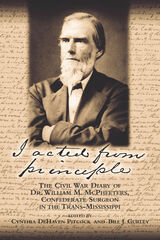



Like nesting dolls, the poems in I Was Waiting to See What You Would Do First contain scenes within scenes, inviting the reader over and over again to sharpen focus on minute details that, though small, reveal much about human perception and imagination.
Angie Mazakis handles these layers of revelation with great tenderness. Her poems wander in the way that a curious mind wanders, so that even though they often end very far from where they started, they are anchored in the familiar, referring to experiences we all share: a moment of distraction in a coffee shop imagining a conversation with someone across the room, or a narrative built around the expressions of the cartoon people on the airplane seatback safety guide.
I Was Waiting to See What You Would Do First is a testament to the notion that whether through a cosmic or microscopic lens, “You just see one moment; you just see now.”

Whereas the Heiskell/Patterson family had been committed to quality journalism, Gannett was focused on the bottom line. The corporation shifted the Gazette’s editorial focus from giving readers what they needed to be engaged citizens to informing them about what they should do in their leisure time. While in many ways the chain trivialized the Gazette’s mission, the paper managed to retain its superior quality. But financial concerns made the difference in Arkansas’s ongoing newspaper war. As the head of a privately held company, Hussman had only himself to answer to, and he never flinched while spending $42 million in his battle with the Pattersons and millions more against Gannett. Gannett ultimately lost $108 million during its five years in Little Rock; Hussman said his losses were far less but still in the tens of millions.
Gannett had to answer to nervous stockholders, most of whom had no tie to, or knowledge of, Arkansas or the Gazette. For Hussman, the Arkansan, the battle had been personal since at least 1978. It is no surprise that the corporation blinked first, and the Arkansas Gazette died on October 18, 1991, the victim of corporate journalism.
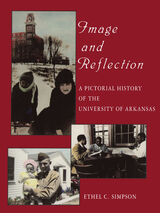


The Improbable Life of the Arkansas Democrat is based on more than one hundred interviews with employees of the Democrat, including editors, reporters, feature writers, cartoonists, circulation managers, business managers, salespeople, typesetters and others, from the 1930s through the early 1990s, when the Democrat took over the more prominent Arkansas Gazette after an aggressive newspaper war.
This new addition to Arkansas journalism history provides vivid details about what it was like to work at the Democrat. August Engel, who led the paper with focused devotion for forty-two years, was famous for his thrift, creating austere conditions that included no air conditioning in the newsroom and sub-par wages. In spite of these drawbacks, the paper was still home to many dedicated journalism professionals endeavoring to do good work.
Readers who remember the ultimate acrimony between the two papers may be surprised to learn that for many years the Democrat and the Gazette owners operated under a tacit agreement of civility. The papers didn’t raid each other’s staff, for example, and when a fire broke out in the Gazette pressroom, Democrat management offered to loan the use of its press. Staffers recall that when the Gazette struggled with an advertising boycott and reduced circulation during the Little Rock Central High crisis because of its perceived progressive editorial stance, which infuriated many Arkansans, the Democrat did less than it might have to capitalize. The eventual newspaper war that combined the two rivals saw the end of any semblance of civility when the Democrat hired an aggressive and infamous managing editor named John Robert Starr.
Through these firsthand stories of those who lived it, The Improbable Life of the Arkansas Democrat tells the story of how the second-place paper overtook the oldest newspaper west of the Mississippi, forever changing not only Arkansas journalism but also Arkansas history.
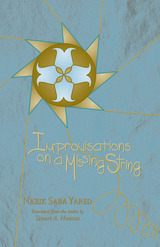
Nazik Saba Yared’s novel, Improvisations on a Missing String, tells the story of Saada Rayyis, who, after a mastectomy and prior to another operation which she may not survive, considers the course of her life with the purpose of understanding not only where she has been, but also where she is going.
In her attempt to cope with complex feelings of alienation and insecurity, she struggles against traditional expectations in order to secure a sense of belonging and fulfillment—but always on her own terms.
From her childhood in Palestine, through her university studies in Cairo, and finally as a teacher in Beirut, we follow the development of this independent woman as she comes to terms with her feelings about family, lovers, politics, art, and finally her own aspirations for belonging.

In American Waters is the catalog of an exhibition co-organized by Crystal Bridges Museum of American Art in Bentonville, Arkansas, and Peabody Essex Museum in Salem, Massachusetts.
The exhibition and this associated catalog invite visitors to discover the sea as an expansive way to reflect on American culture and environment, learn how coastal and maritime symbols moved inland across the United States, and question what it means to be “in American waters.” Work by Georgia O’Keeffe, Amy Sherald, Kay WalkingStick, Norman Rockwell, Hale Woodruff, Paul Cadmus, Thomas Hart Benton, Jacob Lawrence, Valerie Hegarty, Stuart Davis, and many others is included, along with essays from scholars, critics, and the curators.
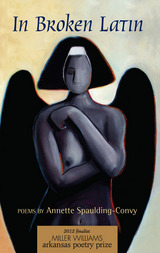
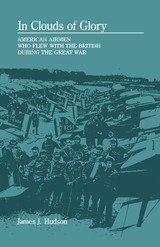




When Thomas Hauser was selected for induction into the International Boxing Hall of Fame in 2019, his relationship with Muhammad Ali was widely cited. But Ali was just one of the many fighters who have shared momentous times with Hauser. For decades, elite fighters like Evander Holyfield, Manny Pacquiao, Roy Jones Jr., Bernard Hopkins, Ricky Hatton, Kelly Pavlik, Sergio Martínez, Jermain Taylor, Miguel Cotto, Gennady Golovkin, and Canelo Álvarez have welcomed him into their dressing rooms to record their journeys on fight night.
Gathering and updating more than thirty essays from Hauser’s critically acclaimed yearly collections, In the Inner Sanctum celebrates these most dramatic hours in boxers’ lives. In each account, Hauser chronicles the very moment when a fighter’s physical well-being and financial future are on the line—when the fighter is most at risk and most alive.
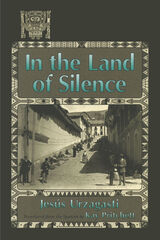
This masterful translation of a recent Bolivian novel, En el pais del silencio, transports us to a mysterious, silent, and unfamiliar land where astonishing truths are placed within our grasp.
Like a parabola, this amazing story begins and ends in the same place on the same day in the life of a single persona with three interior entities: Jursafú, The Other, and The Dead Man. By portraying them as separate, Urzagasti accentuates their interrelatedness, for one character cannot grow without the others, nor can any one of them move toward an ultimate goal without the experience and knowledge of the other two.
The author’s mature and thoroughly Bolivian style is marked by a synthesis of poetic and novelistic techniques which blend perfectly the indigenous and European voices of his ancestral home.
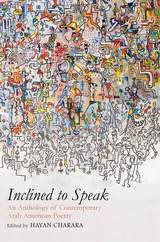
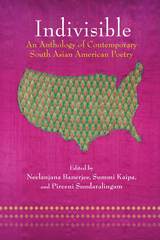

Amidst this optimism, however, is limited land and material resources. Food security is in tension with environmental concerns, and government aspirations are often in friction with daily, individual struggles for subsistence.
Interpreting Kigali, Rwanda explores the pressing challenges and opportunities to be found in planning, designing, and constructing a healthy, equitable, and sustainable city. Asking “what is an authentic-yet-modern, prosperous-yet-feasible African city, Rwandan city?” Smith, Berlanda, and colleagues conducted research on Rwandan activities of daily living and how these routines are connected to space-making practices and the Kinyarwanda terms that describe them.
Through a culturally informed view of urban and rural lifestyles and spaces, Interpreting Kigali, Rwanda presents principles and proposals for neighborhood development in the challenging context of Kigali’s informal settlements. With one billion people living in informal settlements worldwide, a number expected to double by 2030, the lessons learned in Rwanda provide a complex, fascinating, and urgent study for scholars and practitioners across disciplines and around the world.
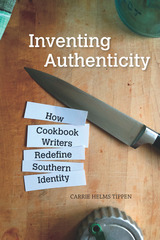
Tippen discusses the act of cooking as a way to perform—and therefore reinforce—the identity associated with a recipe, and the complexities inherent in attempts to portray the foodways of a region marked by a sometimes distasteful history. Inventing Authenticity meets this challenge head-on, delving into problems of cultural appropriation and representations of race, thorny questions about authorship, and more. The commonplace but deceptively complex southern cookbook can sustain our sense of where we come from and who we are—or who we think we are.
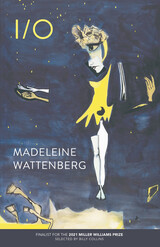
Finalist for the 2021 Miller Williams Poetry Prize.
Madeleine Wattenberg’s debut collection I/O, finalist for the 2021 Miller Williams Poetry Prize, alternates between epistolary poems to the mythical figure Io and lyrical interrogations of science, myth, and the historical record. Wattenberg casts Io—the priestess of Hera who was turned into a heifer—as a woman struggling to navigate the terrain between choice and coercion. Accompanying the letters to Io are poems whose explorations range from laboratories to airships in their pursuit of answers. Here the poetic imagination emerges as its own laboratory, drawing inspiration as much from ancient myth as from science and steampunk as it refuses to be constrained by a final conclusion.
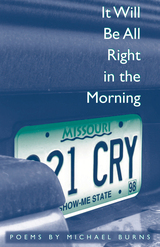
In his plain-spoken lyrics and dramatic monologues, Michael Burns digs at the marrow. His poems—in formal and free verse—are quick, incisive, and always capable of revealing the dark whimsies of fate and the pain of our own actions and inactions.
These poems travel to Casqui mounds in the Arkansas Delta, traffic-clogged urban streets, a wasteland in Oklahoma, and Faulkner’s Rowan Oak. They assume the voices of others so convincingly that we find ourselves face to face with hunters, philanderers, husbands, a Union general, a Snopes, and even a version of God.
Gathering the images of each place, crafting lines in clear, unpretentious language, Burns comes across new knowledge, confronting the ever-present mysteries and the ways the mind loves to lie to itself.

A much-revered icon of jazz, Dave Brubeck is, as Doug Ramsey calls him, “one of the most celebrated and successful jazz musicians of all time.”
It’s About Time, Fred Hall’s biography, explores the many influences on Brubeck’s life and music: his youth on a cattle ranch in the foothills of the Sierras; a stint in Europe with Patton’s army during World War II; the development of the West Coast jazz scene and the rise of the Dave Brubeck Quartet; musical relationships with Paul Desmond, Eugene Wright, Joe Morello, and many more jazz greats; his phenomenal experiments with polytonality and polyrhythm; his fifty-three-year marriage to Iola, manager, collaborator, and mother of their six children; and important career breakthroughs, such as the first-ever million-selling jazz single, “Take Five.”
Including an annotated discography, It’s About Time is much more than an upbeat examination of the Brubeck phenomenon. It is also a penetrating view of the culture, the music, the musicians, the recording industry, and race relations of the country and the century that gave birth to jazz.
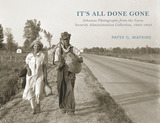
Of the roughly one thousand FSA photographs taken in Arkansas, approximately two hundred have been selected for inclusion in this volume. Portraying workers picking cotton for five cents an hour, families evicted from homes for their connection with the Southern Tenant Farmers Union, and the effects of flood and drought that cruelly exacerbated the impact of economic disaster, these remarkable black-and-white images from Ben Shahn, Arthur Rothstein, Dorothea Lange, Walker Evans, Russell Lee, and other acclaimed photographers illustrate the extreme hardships that so many Arkansans endured throughout this era.
These powerful photographs continue to resonate, providing a glimpse of life in Arkansas that will captivate readers as they connect to a shared past.
READERS
Browse our collection.
PUBLISHERS
See BiblioVault's publisher services.
STUDENT SERVICES
Files for college accessibility offices.
UChicago Accessibility Resources
home | accessibility | search | about | contact us
BiblioVault ® 2001 - 2024
The University of Chicago Press









